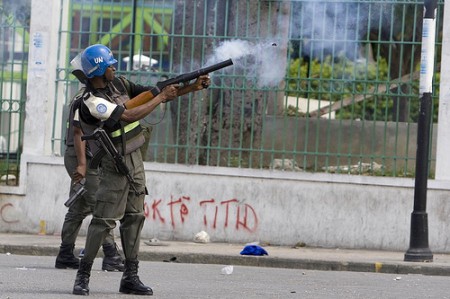
Most UN peace missions established during or after conflict need the permission of the host country in order to deploy international troops. Once deployed, UN operations come to play a formative role in helping to re-build the state apparatus. They operate by, among others, establishing the rule of law, providing security, jump-starting economic development programs, and helping the host government build its capacity to form functioning state institutions.
However, government consent does not necessarily translate into popular support for such a strong foreign presence, which can be seen by local populations as too intrusive and pugnacious. A recent wave of popular backlash against UN missions has brought into question the universality of the UN’s internationalist norms and practices.
In Sri Lanka, following the government’s defeat of the Tamil Tigers’ 25-year armed campaign for an independent Tamil state, Secretary-General Ban Ki-Moon appointed a three-member panel to advise him on allegations of human rights violations that allegedly occurred during the protracted conflict. Resistant, a Sri Lanka government cabinet minister, Wimal Weerawansa, calling on Ban Ki-Moon to dissolve the panel, is leading hundreds of Sri Lankans in protest outside the UN office in Colombo, blocking access to the UN offices as well as harassing and intimidating officials.
